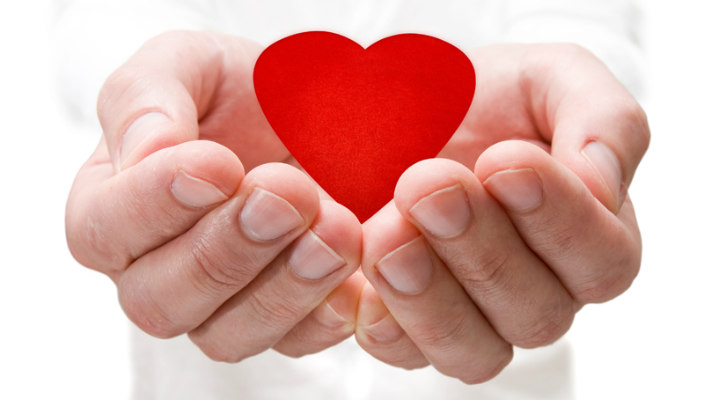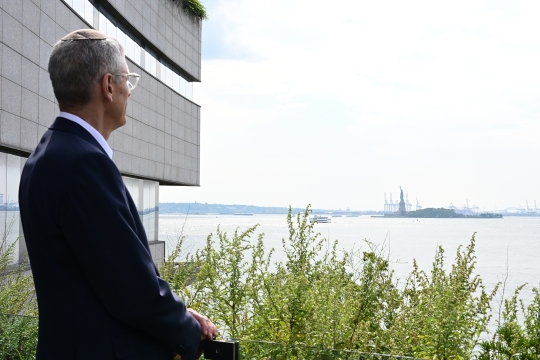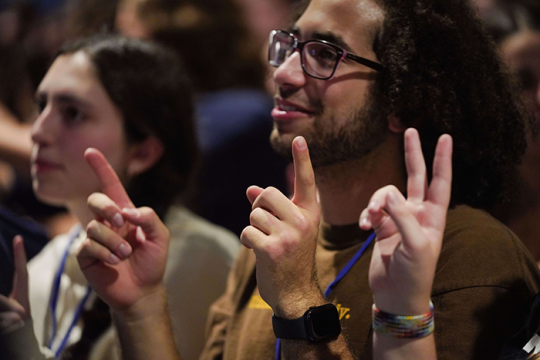
“Kol Yisrael arevim zeh la-zeh.” All Jews are responsible for one another.
The Jewish emphasis on community and caring for each other is inherent in our tradition, from The Talmud through Maimonides’ tiers of righteousness to today’s great thinkers. Rabbi Harold Kushner has taught, “Jews don’t pray for, Jews pray with,” a principle that informs our inclusion agenda at Temple Ohabei Shalom in Brookline, MA. This is true not only for prayer but for all communal activities: If our communal life is not available for all who want to participate, we are failing to fulfill a basic mitzvah (commandment) – and we’re also missing out on an essential part of our sacred community.
At Temple Ohabei Shalom, we define inclusion broadly, and when we speak of humanity being created b’tzelem Elohim (in the image of the Divine), our thinking goes way beyond physical abilities. The staffs of our award-winning preschool and religious school spare no effort in meeting the needs of diverse learners, and our inclusion committee focuses on oft-marginalized communities, including Jews with disabilities, LGBT Jews, interfaith families, Jews of color, diverse family configurations, and more.
Inclusion is central to all we do at Temple Ohabei Shalom, and it has been for years. We are an unpretentious and welcoming congregation that serves a staggeringly diverse population, and it has always been our priority to create a warm and inclusive experience for congregants and guests alike. With that in mind, we recently embarked on an ambitious renovation project that has resulted in a modernized and accessible bima (pulpit) in our historic sanctuary. Now, everyone in our community can ascend the bimah for an aliyah, regardless of their physical abilities. Next, our sights are set on replacing our antiquated elevator to make the ride from the worship level to the social halls as pleasant and hospitable as the rest of our community is.
Our commitment to inclusion is also the reason our building renovations included a wheelchair-accessible, gender-neutral bathroom. It’s the reason our clergy are careful to announce page numbers and invite people to stand and sit “in body or in spirit” during services. And it’s the reason our caterer makes a special tray of food for children with severe food allergies.
In other words, taking care of each other is a core value here.
We have had many occasions recently to celebrate our diversity. Just a few months ago, we co-hosted a Shabbaton with the Synagogue Council of Massachusetts titled “Shabbat for All God’s Children: Inclusion & Accessibility in Judaism,” which featured text studies led by the eminent disability scholars Rabbi Julia Watts Belser and Professor Jeremy Schipper. A few weeks prior to that, the congregation kvelled together at the bar mitzvah of a boy with Down syndrome who has been a cherished member of our community since he was a toddler.
Despite these major strides, we know there is a long way to go. In addition to the elevator update, we’re exploring several other prospects: livestreaming services into a quiet room for those whose sensory issues make being in the main worship space overwhelming, updated signage to make our building more welcoming and navigable, a congregation-wide disability awareness curriculum, ASL interpreters for select services and events, and more. In partnership with community organizations, we are leveraging our resources and passions to ensure that our inclusion agenda continues to grow.
When it comes to inclusion, there’s so much to do that it can be difficult to know where to start. Jewish Disability Awareness and Inclusion Month offers communities a great opportunity, either to get going on our respective inclusion agendas or to check in on our progress. While we’re excited to grab the microphone during February to talk about disability inclusion, a month is not enough! Inclusion is part of our identity at Temple Ohabei Shalom and will remain so – long after February 29.
Naomi Gurt Lind is director of membership and engagement at Temple Ohabei Shalom in Brookline, MA. She serves on the board of directors of LimmudBoston, sings with the Zamir Chorale of Boston, and is active with Synagogue Council of Massachusetts. She lives in the Boston area with her husband and their two young sons.
February is Jewish Disability Awareness and Inclusion Month, a unified initiative to raise disability awareness and support efforts to foster inclusion in Jewish communities worldwide. For important resources created by top disability experts, visit the Disabilities Inclusion Learning Center, created by the Union for Reform Judaism in partnership with the Ruderman Family Foundation.
Have something to say about this post? Join the conversation in The Tent, the social network for congregational leaders of the Reform Movement. You can also tweet us or tell us how you feel on Facebook.
Related Posts

Marking this Moment: Resources for the Release of the Hostages

A Message for Rosh HaShanah 5786
